Nassablé High School Computer Classroom Project
Region:
Dapaong, Togo
Start OF THE PROJECT
December 2021
PROJECT DURATION
18 month
PRPJECT STATUS
Completed
BeneficiariES
Students, teaching staff and community
PROJECT OBJECTIVE
Improvement of structural and didactical conditions
Costo Totale:
20’000 CHF
SUPPORTED BY
Humanitarian Association “if…”, Move For Charity, Institute of transition and support, GFP mediconsul, Assofide AG, Driver Center Agom Bioggio, private funding
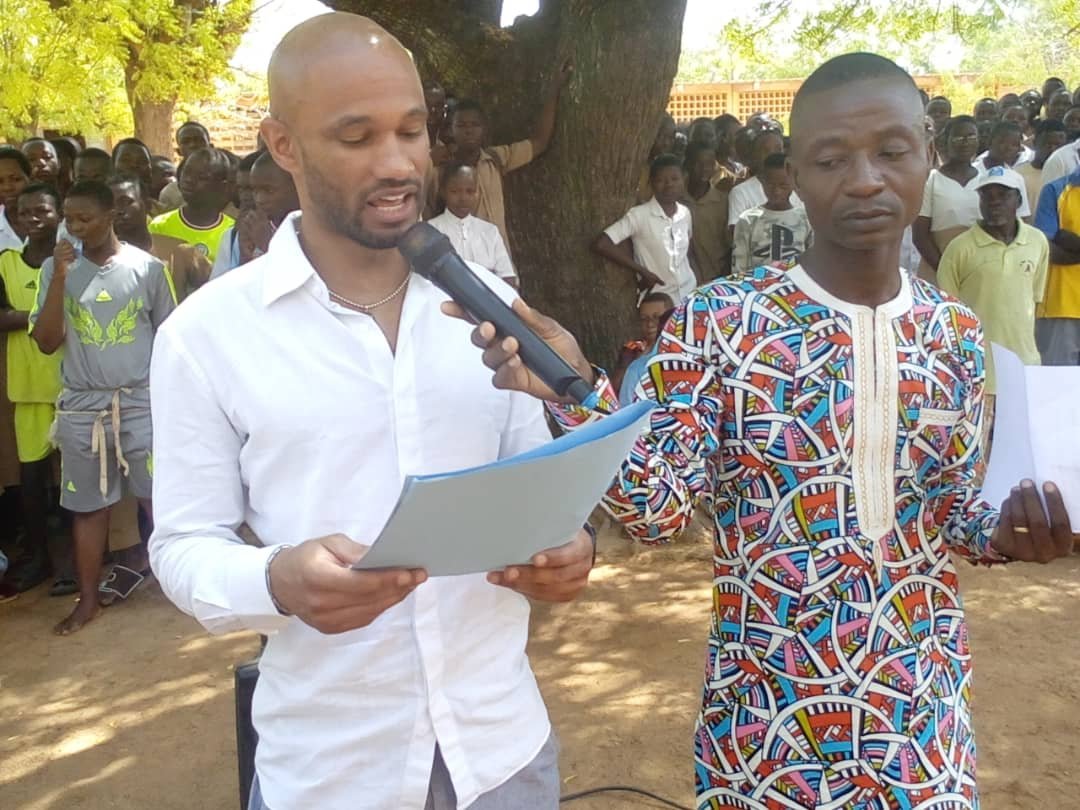
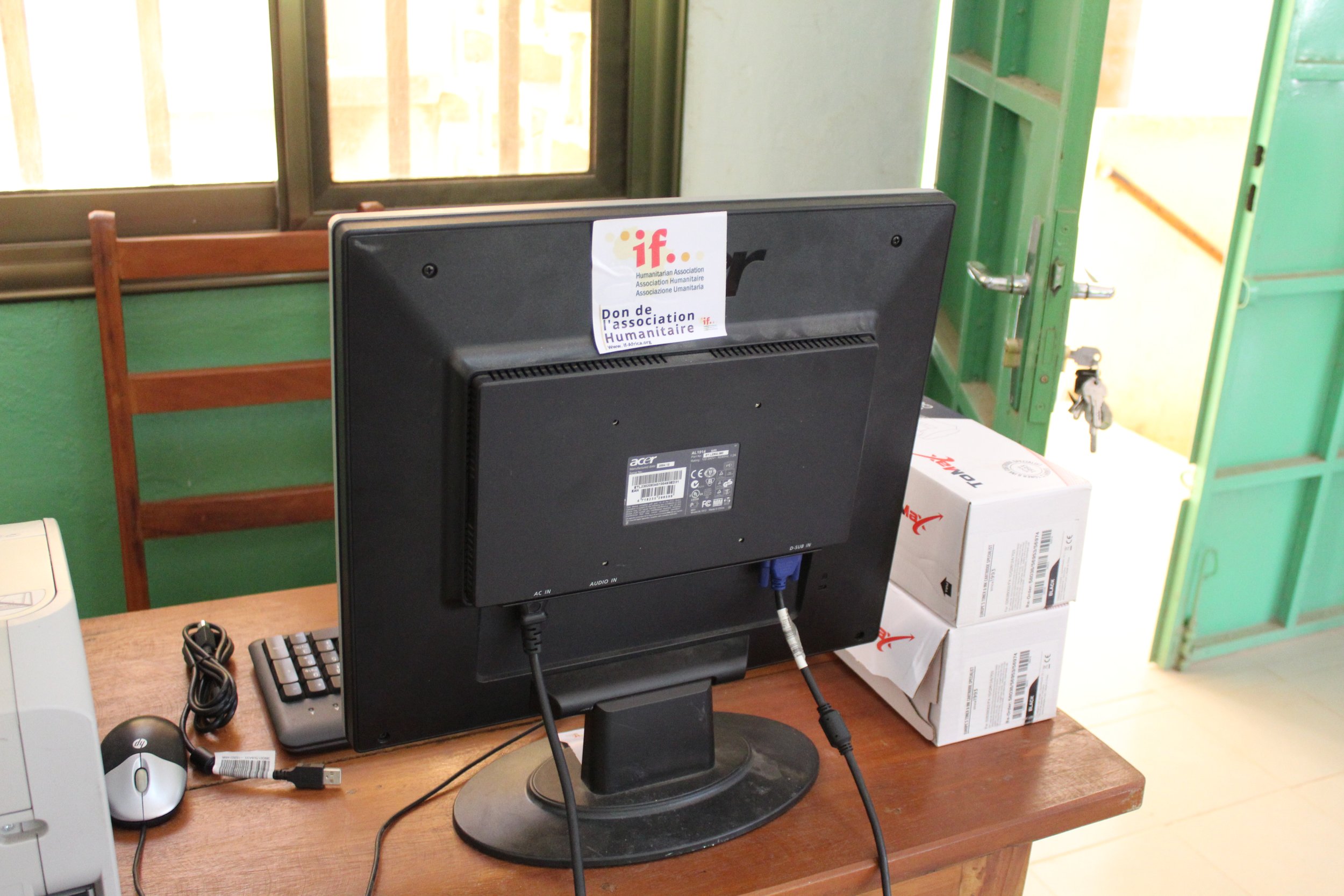
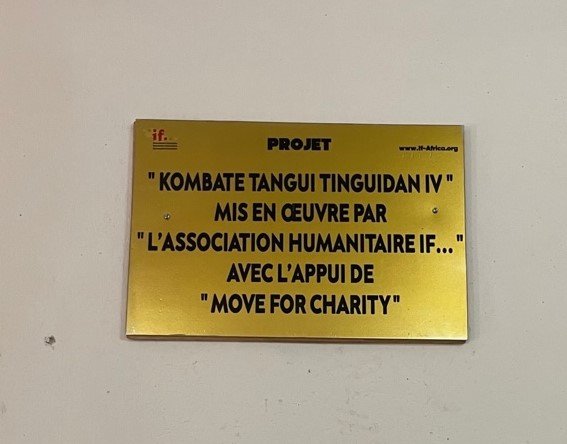
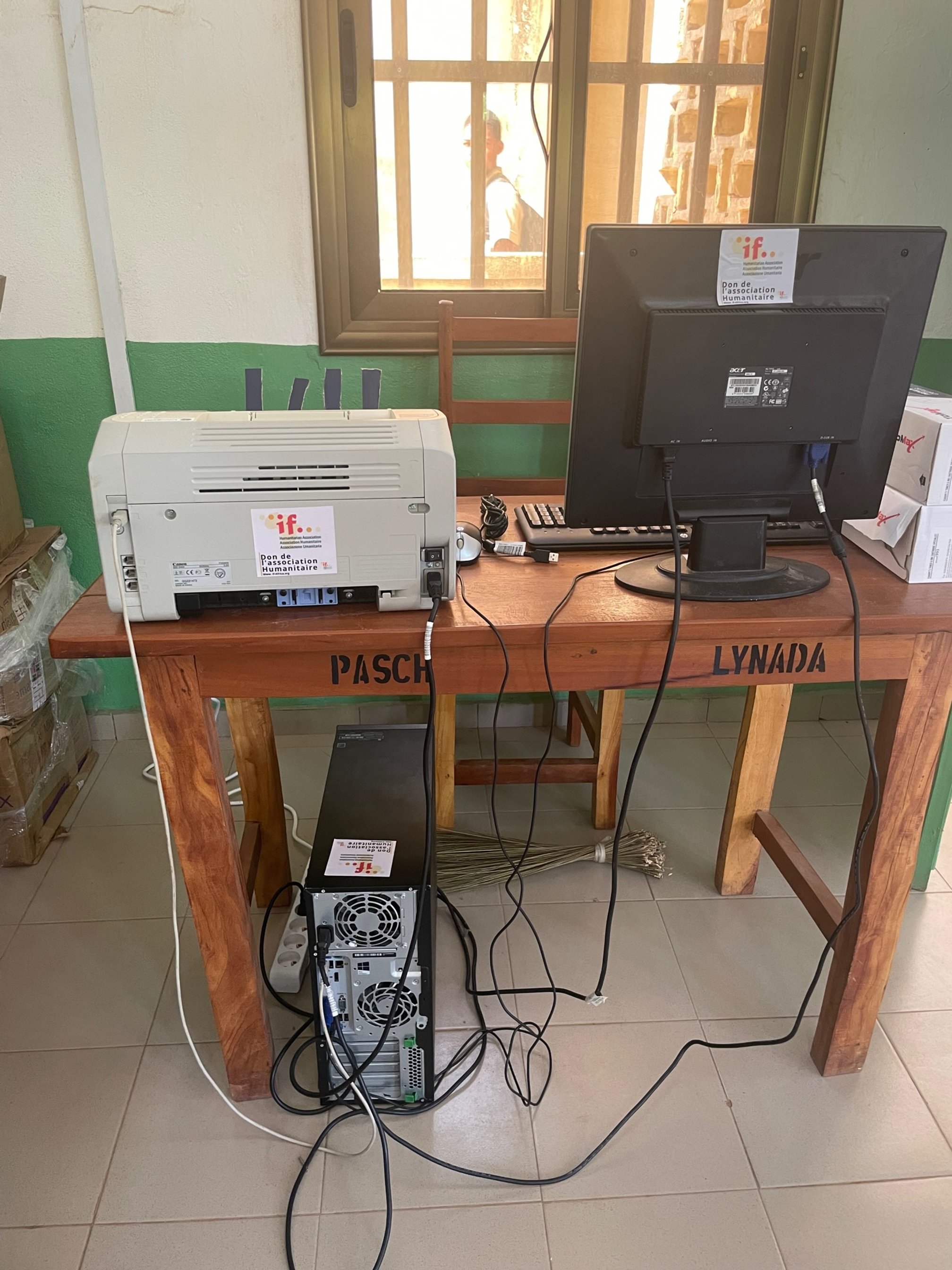
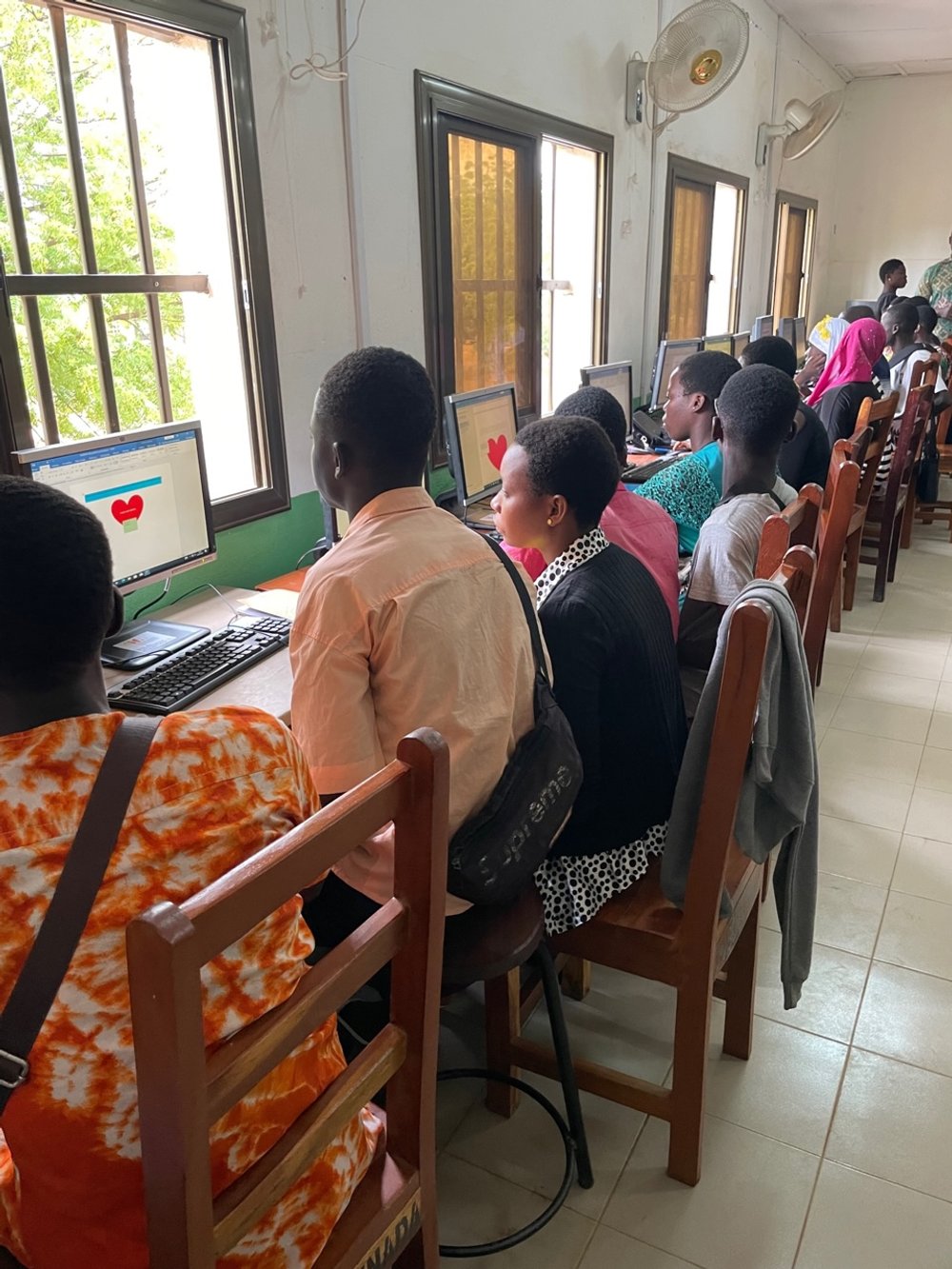
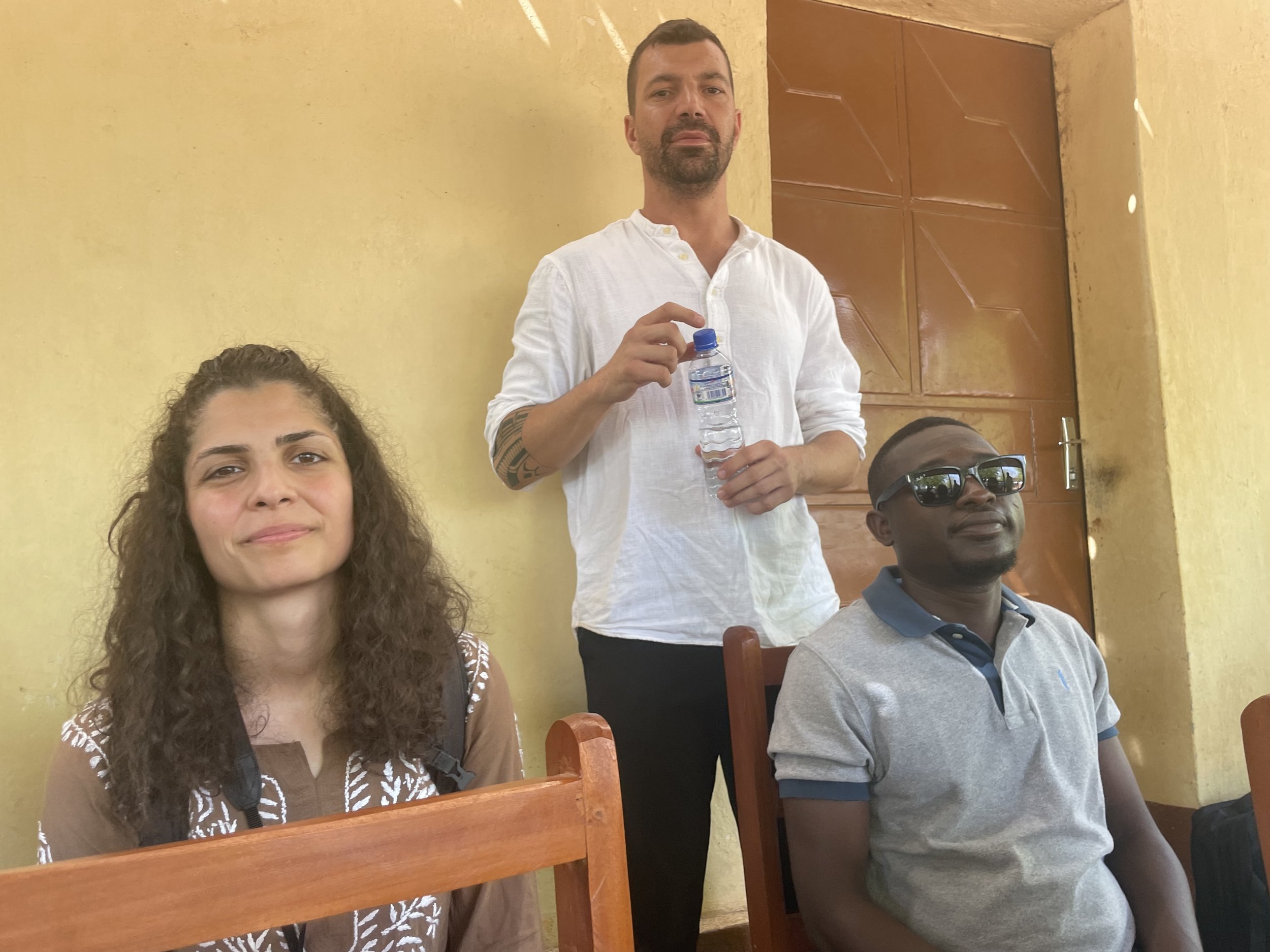
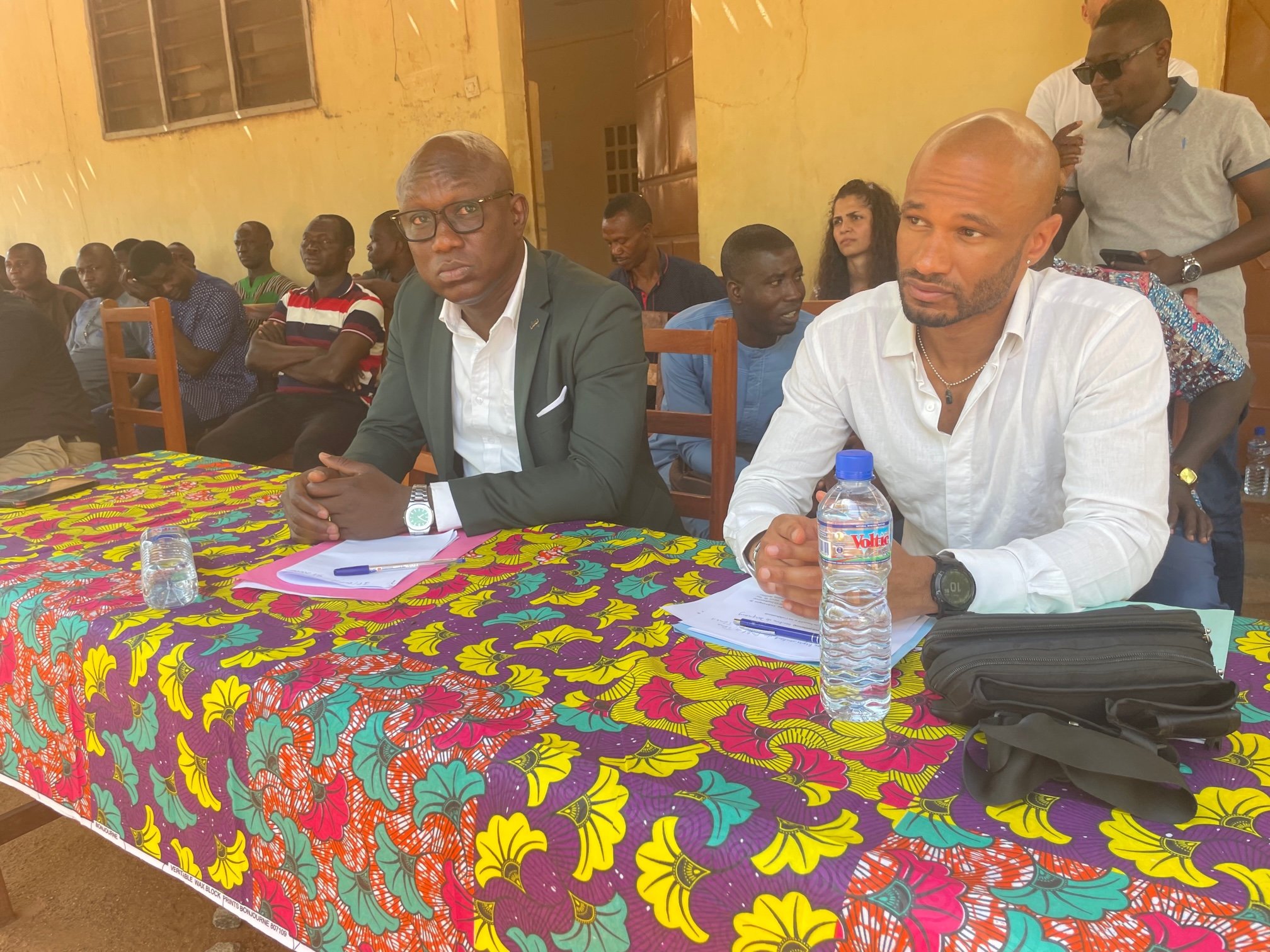
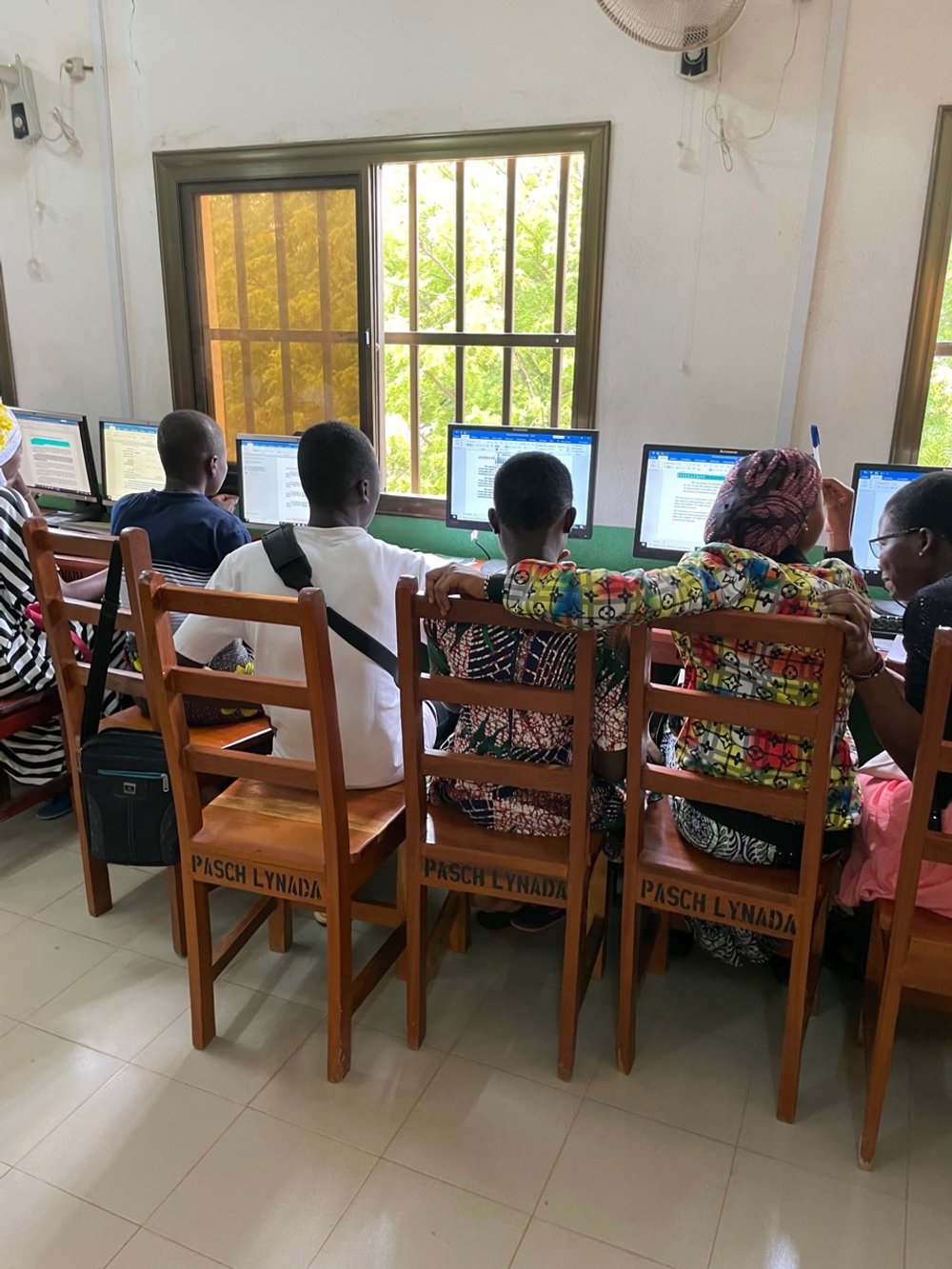
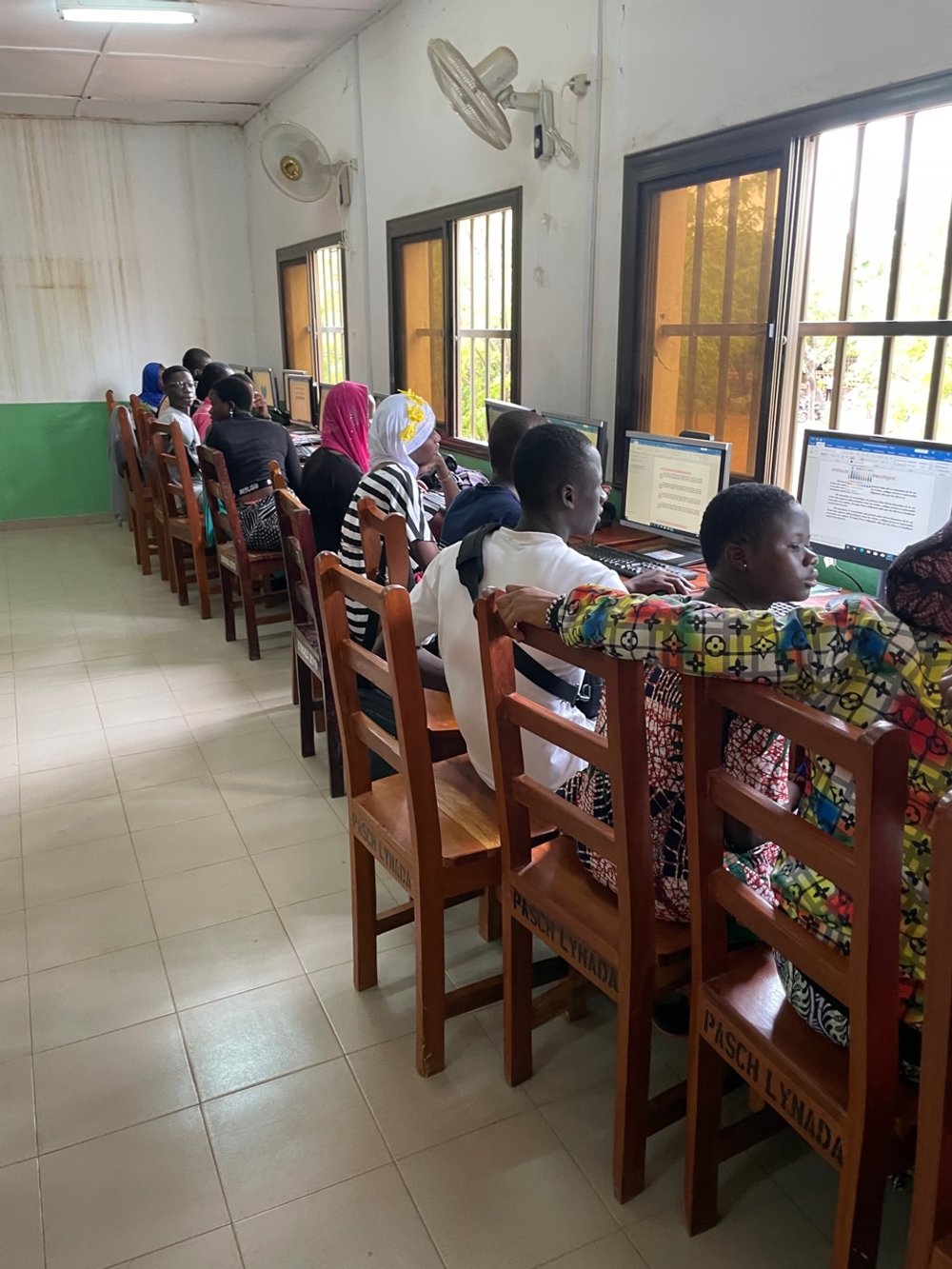
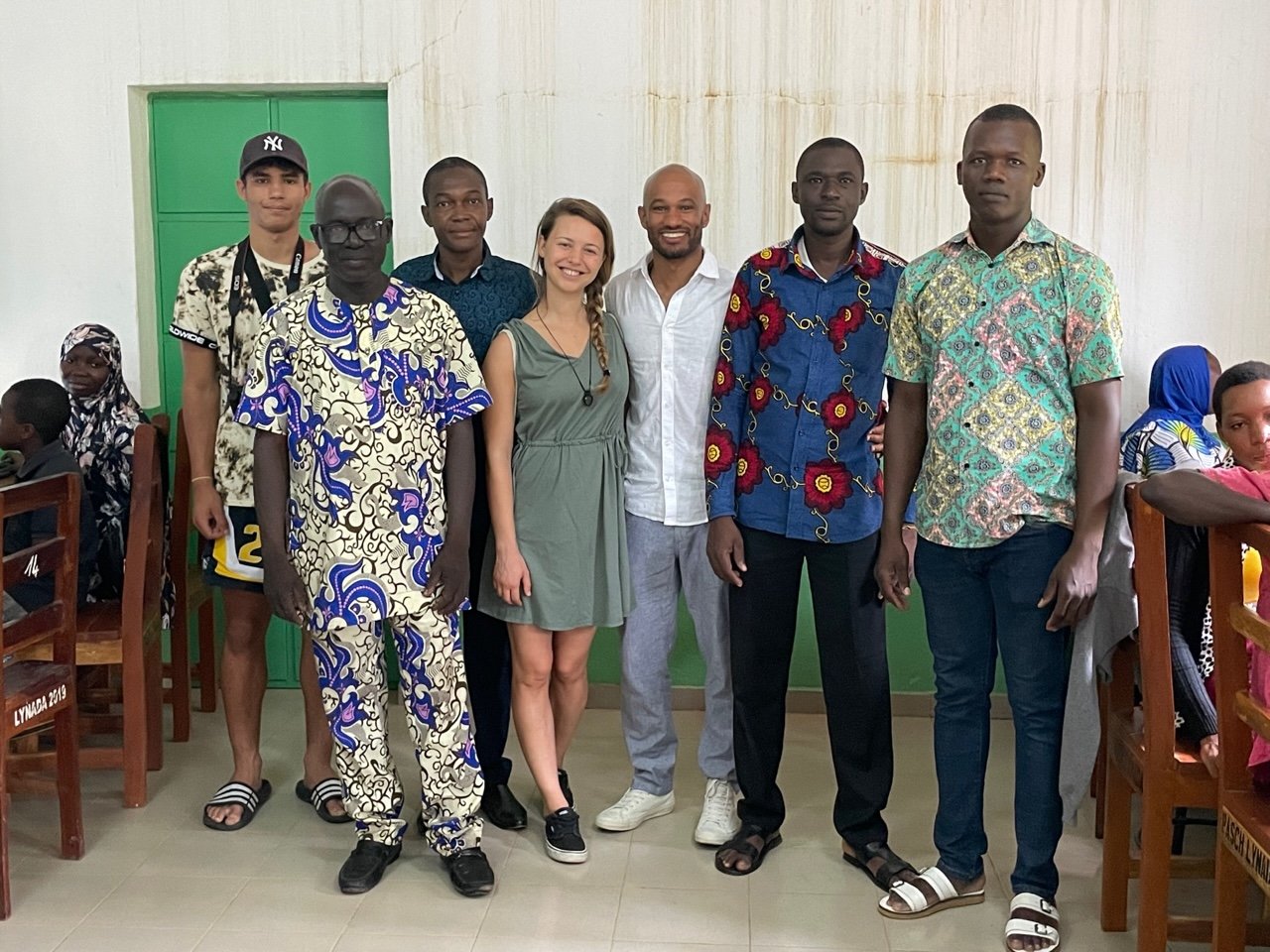

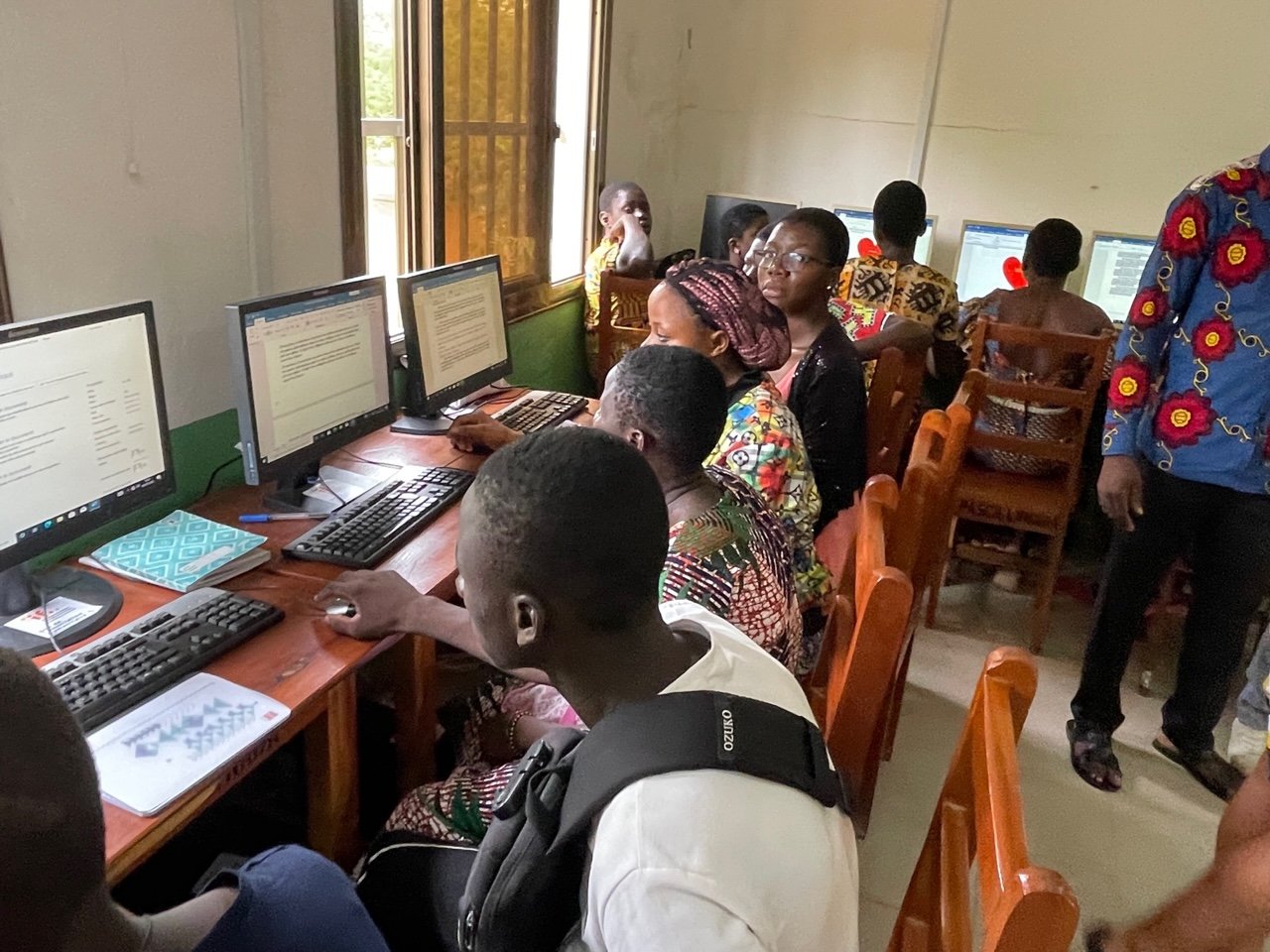
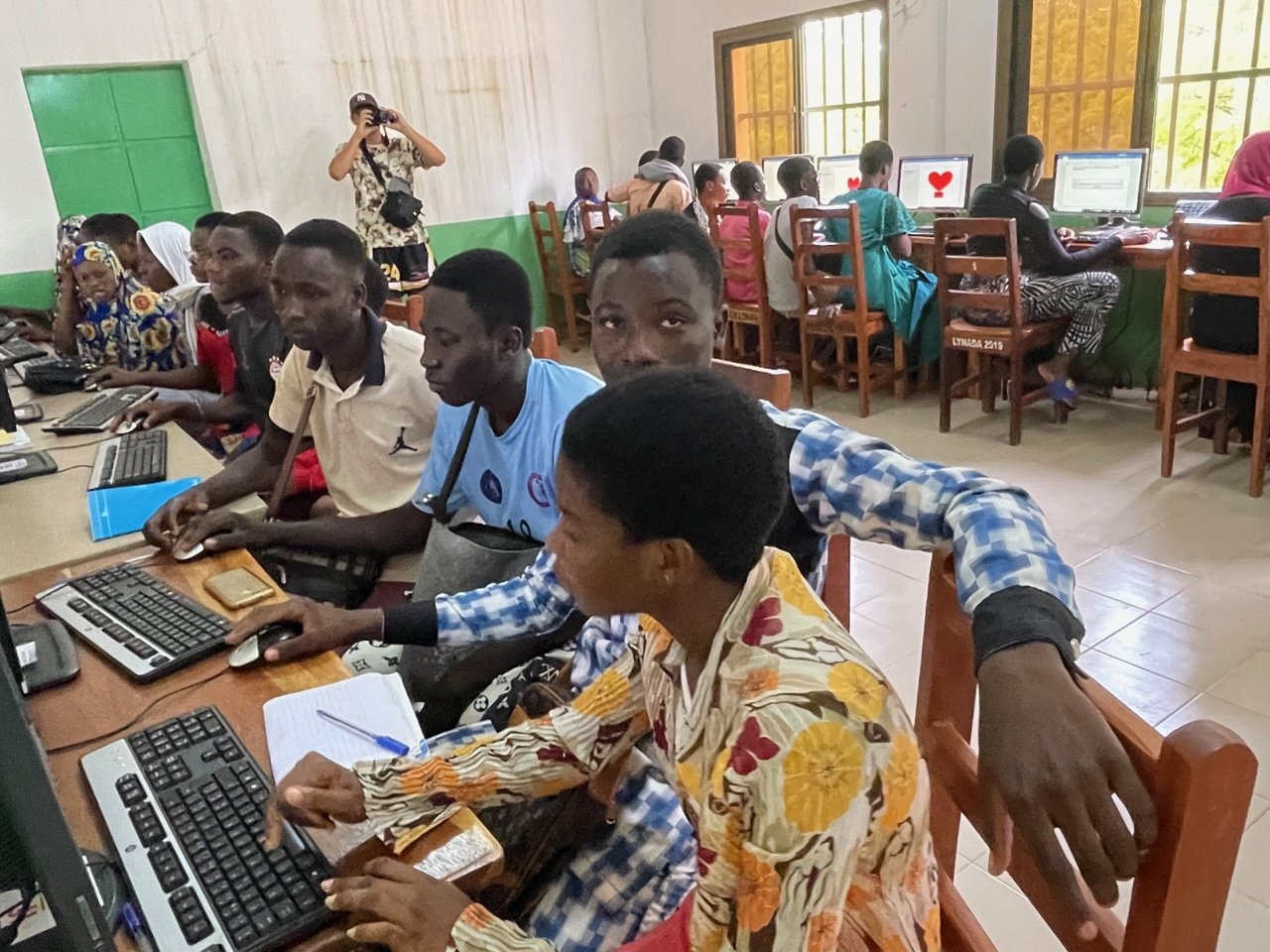
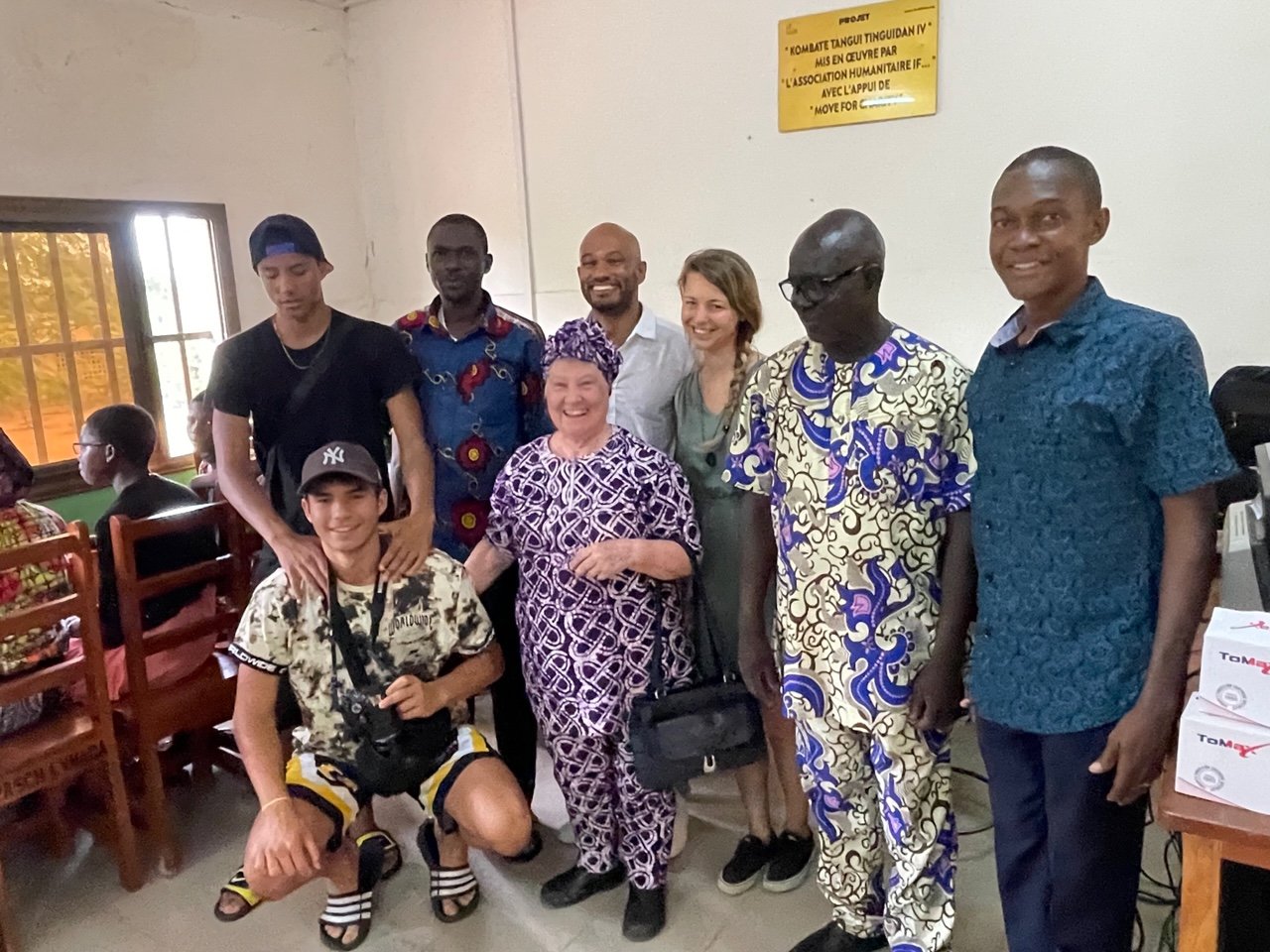

Tône1/ appui à la numérisation des écoles *:l’association Humanitaire « if » fait don de matériels informatiques au lycée nassablé.*
Le 3e adjoint au maire de la commune Tone1, M. TCHABLI Lorimpo, a présidé au nom du maire ce jeudi, 23 mars 2023, dans les locaux du lycée nassablé, la cérémonie de remise d'un don de matériels informatiques, composé de 31 ordinateurs, une imprimante et une photocopieuse. Ce don d'une valeur de douze millions de francs CFA (12000000 F CFA) est l’œuvre de l’association Humanitaire « if » basée en Suisse. Ce matériel a permis d' équiper la salle informatique de ce grand lycée de la commune.
*Lire la suite en cliquant sur*
https://m.facebook.com/story.php?story_fbid=pfbid032pqSBGxiHWdrfxjddfzhk5Jab8qg7aQ9Q3u1A3o2v5PdPPkitwoQH7av8akGeirjl&id=100064791963856&sfnsn=mo&mibextid=RUbZ1f
The Nassablé high school in Dapaong with its 1477 students (2022-2023) is historically the first high school complex founded in the Savannah region, a region which with the average annual per capita income of around 350 USD is the poorest and least developed country.
Project origins
Goal number 4 of the 17 Sustainable Development Goals (SDGs), introduced with the UN 2030 agenda, "promote quality, inclusive and equal education and ensure lifelong learning opportunities for all", aims to guarantee by by 2030, completely free primary and secondary education and an equal and quality level of training for all children, young people and adults, in particular the most marginalized and vulnerable.
Great progress has been made regarding access to education for boys and girls, especially in primary school, but unfortunately access to education does not always mean quality education, just as it does not always guarantee that children will complete their years of primary school. There is still a lack of literacy in 103 million young people around the world, 60% of whom are female. Furthermore, in at least 1 in 4 countries, more than 50% of children fail to acquire basic mathematical knowledge by the end of primary school. While, in one nation out of three, this acquisition is not achieved even by the end of lower secondary school.
The significant disparity in opportunities between OECD countries and developing countries, where almost all of the 100 million school-age children without access to education reside, often adds to the imbalance within the same countries where in addition in addition to further discrimination based on gender and economic possibilities, there is also a disparity in opportunities, linked to territoriality, between urban areas and rural areas. In this context, access to the use of innovative technologies, as well as being a fundamental element for the quality of the training provided, often turns out to be an additional discriminating factor.
Project Description
The Nassablé high school with its 1477 students (2022-2023) is historically the first high school complex founded in the Savannah region, a region which with the average annual per capita income of around 350 USD is the poorest and least developed in the village. This reality, like the various school structures present in the area, does not have any type of tool or service related to the teaching of computer science.
Based on the excellent results obtained with the "Dante Morresi" project, the "if..." Humanitarian Association has decided to continue its commitment to improving the quality of training and teaching tools available to school centers to encourage the social, economic and cultural development of the local rural community and in particular of its students.
The “Kombatè Tangui Tinguidan IV” project, dedicated to the memory of the head of the local community who died in February 2023, involves the setting up of a fully equipped computer room with 31 PCs, a photocopier and a printer.
The specific objective of the intervention translates into providing within the educational path of each student of the school structures involved and to the local community itself, through specific training courses, the possibility of developing basic skills in the use of IT tools.
The new service, which aligns with the new national strategic plan "Feuille de route Togo 2025" (FDR 2025), is based on the close collaboration, in strategic-operational terms, of the structure's teaching staff and the support of the "Ministry of Primary, Secondary, Technical and Craft Education" which, under the supervision of the local partner DassiFem and the Humanitarian Association "if..." itself, will directly deal with the management and sustainability of the project.
Expected and reached results
Thanks to the involvement and generous support of various financiers, in particular Move For Charity, the Institute of Transition and Support, GFP Mediconsul, Assofide AG and Driver Center Agom Bioggio, on 03.23.2023, in the presence of the various institutional authorities and traditional media, national mass media, students and teaching staff, together with the lively participation of the entire local and neighboring community, the official inauguration ceremony of the new Nassablé High School Computer Room service was held.
The success of the new reality, also obtained on the basis of the experience gained with the "Dante Morresi" project, confirms the possibility of creating a sustainable and reproducible structural, organisational, managerial and educational service model to obtain results with impact on a wide stairs.
The great current challenge, which will require the cooperation of all the actors involved in the project and in particular a rigorous monitoring action by the association itself and optimal management carried out by the managers of the structure, will be to guarantee the sustainability and correct appropriation of the beneficiaries at the end of the expected 24-month accompaniment path.
